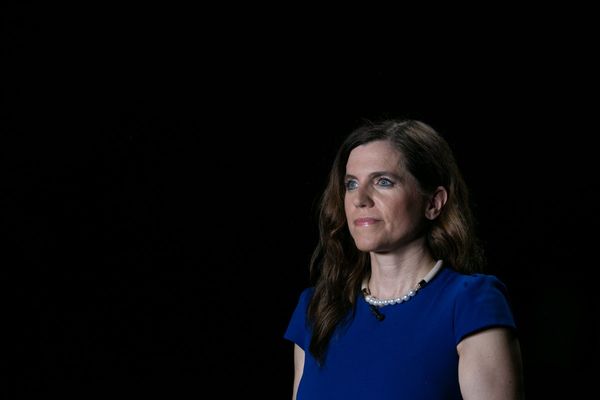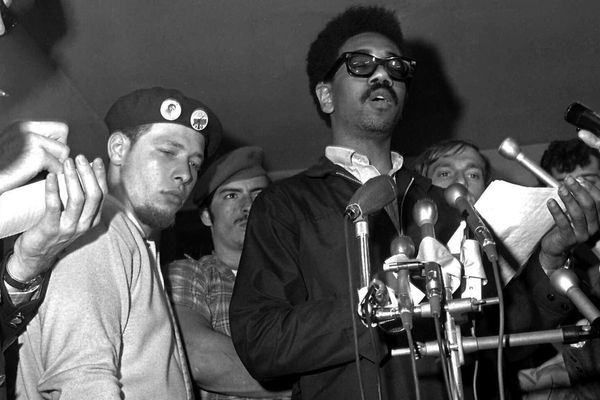Reporter/Photographer: Sophie Wei
Translator: Ying-jen Lin
A post-90s girl immigrating by investment, a post-80s “Taiwanese daughter-in-law,” and a post-70s father choosing to immigrate for the sake of his three children’s education — three Hongkongers of different generations have each gone through a destroy-and-reconstruct period to acclimatize to their new life and environment in Taiwan.
How did they overcome the challenges that came with immigration? What advice would they give to Hongkongers who are considering emigration as a result of the ongoing anti-extradition bill protests?
“My business closed down within two years, and I lost money.”
“You can’t romanticize about other countries with your own imagination. The more you romanticize, the more difficult it would be for you. That’s how I became a misanthrope in the first two years…,” said Selina, who has immigrated to Taiwan four years ago.

Selina, 31, a fashion designer, married her Taiwanese husband when she was 27. When her husband quit his job in Shenzhen in 2015, Selina said goodbye to her family and moved to Taiwan with her husband. In the beginning, she was determined to become financially independent without relying on the support of her husband’s family.
When she was living in Hong Kong, Selina wore formal outfits (“Must be branded clothing, ZARA at least!” she said) and rode the crowded subway to her office every day. Shortly after arriving in Taiwan, she opened a small fashion boutique near the Taipei Main Station in the Zhongshan District. She said candidly that because she neither understood the Taiwanese consumption habits nor conducted market research properly, she ran her business based on a Hongkonger’s mindset.
“It closed down within two years, and I lost money. Although I compensated for my loss with my other investments, I lost a lot of money on that storefront alone," she said.
Prior to settling in Taiwan, she visited Taipei several times with her husband before. She thought of herself as quite familiar with Taipei, but she had looked at Taiwan through a "tourist’s filter" at the time.
“A lot of people said the rent in Tapei's Eastern District was expensive, but I felt it was nothing compared with Hong Kong’s standard,” she said.
She ended up opening her shop in Zhongshan District, where rent was lower than that of the Eastern District's. However, her business was not as profitable as expected since her merchandise price was too high.
“My shop invited many designers from Hong Kong to consign their goods at the time. They would receive commissions only when their goods were sold. Rents in Hong Kong were high so the goods there were priced higher as well. Just a small pair of earrings might be NT$2,000 (or HK$500). The Taiwanese were shocked upon seeing the price tag, so how could they possibly make any purchases?” Selina said.
To her, Hong Kong’s economic development has been going well to date, though it is harder to judge its future. Of her friends in Hong Kong, some run restaurants and clothing shops while others own auto shops. As long as you are willing to work hard, you will have a thriving and prosperous business, she said. She felt that “no one really worries about money" in Hong Kong.
In contrast, the education levels and working hours of Taiwanese labor are not proportional to the salaries they deserve. To her friends who want to immigrate to Taiwan, Selina said, “I did tell them that it is hard for young people to make a living here. They work very hard, but their salaries are low.” Selina disclosed that she had friends who wanted to transfer to their companies’ Taiwan branches because they liked Taiwan, but their salaries would be cut by a third.
From a Hongkonger’s perspective, she commented on Taiwan and said, “I think people here are too complacent with the status quo. There are few foreign companies. Economically, you can only earn and spend money locally. This is actually very self-confining. Everybody earns little, spends little, and is satisfied with small happiness. When everything is that little, things move along slowly.”
“I really wanted to go back to Hong Kong in the first two years!” Selina recalled. Apart from her business not going well, she was constantly ill because she was not used to Taiwan’s food and climate, despite Hong Kong and Taiwan being only separated by a body of water. She lived with her husband’s family and often had clashes since she was not familiar with Taiwanese customs and couldn’t understand Hokkien.
“I didn’t have any friends to talk to, I didn’t dare speak to my husband about it, and I didn’t have my own family to rely on. So sometimes I secretly cried in bed at night," she said.

After struggling for two years, Selina shut down her shop and focused instead on running her online shop selling handicrafts. She would set up a physical stall at weekend markets sometimes. She and her husband left the old district where they had lived with his family, and moved into a modern apartment building near the airport express station. From her clothing style and life tempo to her Mandarin accent, she gradually removed herself from Hongkongers’ obsession with money and impatience, and became "softer." After starting operating her online shop, she learned a word in Hokkien, "Ao-Kei (奧客)", which means customers who throw tantrums without reasons. Removing the tourist filter, she learned to accept the "real Taiwan."
“I’ve got used to [life here] now. I would think living here is better than Hong Kong. It turned out I could carve out a niche of my own in Taiwan," Selina said.
“I have less baggage by moving here alone.”
Unlike Selina who moved to Taiwan through marriage, Chen Shiao-yu (陳筱瑜), 28, immigrated to Taiwan using her savings from working as an after-school tutor and as a barista in Hong Kong as well as financial support from her family. In 2017, she spent NT$6 million (about HK$1.5 million) on Taiwan's investment visa and then opened a small cafe in Tainan.

Two years ago, she had told me over the phone about the reasons she wanted to leave Hong Kong. It was because she felt no matter how hard she works in Hong Kong, she still wouldn’t be able to afford to buy a house. It is more comfortable and easier to live in Taiwan, she said. Having taken to the streets during the 2014 Umbrella Movement, she felt pessimistic about Hong Kong's "mainlandization" in the future. She didn’t want the next generation to grow up in a “Hong Kong that resembles the Mainland more and more."
Two years later, I stepped into Chen’s cafe for the first time. Upon entering the shop, I saw a copy of Apple Daily used as an ornament on the wall with the words “Hong Kong and Taiwan walk together, their destinies are the results of each other” printed in the white background. In a corner in the shop were consigned merchandise, including Hong Kong minibus signs and items designed with Vita Lemonade elements.

With Cantonese songs playing in the background, she bustled around the kitchen and the dining area with only 10 seats. To save costs, she didn’t hire any employees. While taking orders, she reminded her customers in Mandarin with a Taiwanese accent: “Meals are made to order, so they may take a bit longer.”
Moving to Taiwan alone, Chen felt a little lonely in the beginning, but she is much happier now. Compared with immigrants who moved here by family units, she thought she had more opportunities to practice speaking Mandarin (she even picked up basic Hokkien while in Tainan) and gain a deep understanding of Taiwanese society. Since she got her driving license for motor-scooters, she has been able to move around easily in Tainan, where public transportation is not as convenient as that in other major cities such as Taipei.
Chen fell in love with Taiwan while traveling to the island eight years ago. Before deciding to emigrate, she had visited multiple times to experience what it was like to "live in Taiwan." She said couldn’t understand the Hong Kong immigrants who complained, “You should adjust to this country rather than the host adjusting to you.”
She admitted that she's earning much less in Taiwan than in Hong Kong. "But it’s all good as long as you can live comfortably. Don’t come here for the purpose of making big money. It’s fine as long as you can make enough money to live, travel abroad once a year, and adjust your mindset accordingly," Chen said.
Inquiries about immigration soared threefold
According to Taiwan's National Immigration Agency, from 2009 to July 2019, a total number of more than 40,000 people from Hong Kong and Macao obtained residence permits in Taiwan, while the number of those having been granted permanent residency is more than 8,000.
(Note: Since February 2016, the section "Hong Kong and Macao Residents," which had previously been counted collectively, has been divided into "Hong Kong Residents" and "Macao Residents" with the number of the latter being much lower than that of the former.)
The number of Hongkongers applying for Taiwan's residence permits peaked at more than 7,000 people in 2014. Thereafter, the number of residency applicants stayed at around 4,000 per year. As protests in Hong Kong have been gaining momentum since this June, Chiu Chui-Cheng (邱垂正), deputy minister of Taiwan's Mainland Affairs Council, said at the end of August that there was an upsurge in the number of Hongkongers inquiring about immigration to Taiwan. Among them, those applying to immigrate as dependents or through marriage were the majority, and the next group was immigration by investment.
“The number of inquiries has been slowly growing since April of this year. When the anti-extradition [movement] broke out, the number of incoming inquiries shot up by three times. There would be at least five groups of clients seeking consultation each week. The youngest of them was 25," said Liu I-Chun (劉易峻), an immigration specialist.
More than half of Liu’s past clients were those over 45 who intended to use Taiwan as "the second home after retirement." Since June, he has been snowed under at work and even helped purchase gas masks for his clients to bring back to Hong Kong. “My clients said they felt desperate when they could even smell the tear gas at home. One of them said that he ‘had lost confidence in Hong Kong’ and even started to cry as he was talking," Liu said.
“Get Hongkongers to know the real Taiwan”
Having just marked the fourth anniversary of moving to Taiwan, Ah-K, who brought his three children over with him, just finished up a busy summer. He traveled between Taipei and Tainan to take part in several gatherings in support of the anti-extradition movement. This August, he organized a seminar on Taiwan immigration in Hong Kong. It was a full house, and the additional seminars that were arranged in a short term sold out as well.

“We hope to give accurate information. If they were to immigrate here simply thinking that ‘Hong Kong is terrible, and Taiwan is good,' I’m afraid they would feel disappointed and leave,” Ah-K said, explaining why he organize immigration seminars for Hongkongers.
“A lot of Hongkongers would originally think that Taiwanese and Hong Kong cultures were similar to each other. Only after they came here, however, did they find out that there indeed existed quite a discrepancy between both cultures."
A-K gave an example: Most Taiwanese apartments don’t have trash collection rooms. Residents need to wait at a certain time and spot for the garbage trucks to dispose of their household waste. Besides, trash-sorting categories here are more complex than those in Hong Kong. If not sorted right, the garbage would be refused. Furthermore, it is hard to find live fish at local Taiwanese markets, and one may not get to have authentic Hong Kong cuisine, etc. Ah-K said that these things may seem trivial, yet if one didn’t expect this kind of "culture shock" before immigrating, it would be excruciating during the adjustment period.
Ah-K, 41, went to university in Taipei, so he has a deeper understanding of Taiwan than average Hongkongers do. He worked in media and communication after graduating and returning to Hong Kong. Following the births of his children one after another, he didn’t want his kids to deal with the highly stressful and regurgitative education in Hong Kong, so he decided to immigrate to Taiwan and let his kids have "alternative education" here.
He chose to live in Tainan, which has the least population of Hongkongers of all the "six special municipalities" (Taipei, New Taipei, Taoyuan, Taichung, Tainan, and Kaohsiung) in Taiwan. According to the statistics by the Ministry of the Interior, of the six special municipalities, New Taipei, Taipei, and Taichung have the most residents from Hong Kong.
Why Tainan? Ah-K recalled when driving to Tainan for the first time, he got fascinated with the old town atmosphere of the city and enjoyed the leisure of strolling through alleys between the old buildings. He, as fate would have it, even became one of the founding parents of the Waldorf School in Tainan, whose mission was to encourage children to get close to nature while learning and growing together with their parents.
Ah-K currently manages a family-friendly space rental service in downtown Tainan. The spacious, wood-furnished space is often filled with kids’ laughter. Though having departed from the media and communication industry, Ah-K could not remove his character of being a "cultured person." He continues to post articles on the Internet introducing the cultural differences between Taiwan and Hong Kong, and provides consultation on Taiwan immigration and the relevant follow-up services.
Misunderstanding and reality
A lot of Hongkongers dream about Taiwan'sleisurely lifestyle and hence choose to live in southern Taiwan. Taichung has once been named "Taiwan's Most Livable City" by CNN, which further strengthened Hongkongers’ favorable impression of the city.

However, Ah-K said, “Air quality in Taichung is in fact among the worst in Taiwan. In addition, problems of pollution in Kaohsiung and poor public transport services in Tainan will disillusion people.”
Furthermore, once leaving the Great Taipei Area, the chances of "making a fortune" drop sharply. With long working hours and low pay that are a reality in Taiwan's job market, the result of working hard will just be enough to make ends meet. The average income here can barely compare with that of Hong Kong's.
Plenty of Hongkongers wanted to come and open "authentic" Cha Chaan Teng (Hong Kong-style tea restaurants) in Taiwan, but they found that Taiwanese actually didn’t enjoy the original Hong Kong flavor. The outcome of insistence on "authenticity" was a sluggish business. Some other Hongkongers chose to live on the outskirts of the cities with relaxing, vast living space but at the same time, they wanted to open shops near their homes. “Unlike Hong Kong, where any shops would be near ten of thousands of people, lots of locations in Taiwan are unable to support your shops,” Ah-K said, explaining that he had seen too many failed examples.
Speaking of education, which he placed the most emphasis on, Ah-K pointed out that alternative education in Taiwan is still in its infancy. If one wanted to lessen their kids' learning pressure through "immigration for education" without understanding the traditional education system in Taiwan, the learning stress that would face their children here wouldn’t be any lower.
The “second life” of immigrants
The three interviewees unanimously agreed that if one wants to immigrate to Taiwan, they should take time to gain an understanding of the "real Taiwan."
According to current rules, travel documents of Hong Kong and Macao residents allow them to stay in Taiwan for up to three months. Apart from visiting different cities in Taiwan and learning about one's preferred lifestyle, Chen said that “watching more Taiwanese drama series” is also one of the good ways of gaining insights into Taiwan. “Especially those produced by PTS that explore social issues in Taiwan in-depth," she said.
"A change of mindset" is also an important part. Ah-K said frankly, “Since you have decided to immigrate, why not grab the chance to change your old ways of life, develop your second life properly and live the rest of your life in the way you like?” For the Hongkongers who love to make money and later realize that it is not that easy to get rich after coming to Taiwan, Ah-K said, “Then just enjoy life as much as you can!"
READ NEXT: Hong Kong Protests Revive the Spirit of the Arab Spring
TNL Editor: Daphne K. Lee (@thenewslensintl)
The original article was published in Chinese on The News Lens. If you enjoyed this article and want to receive more story updates in your news feed, please be sure to like our Facebook page below.







